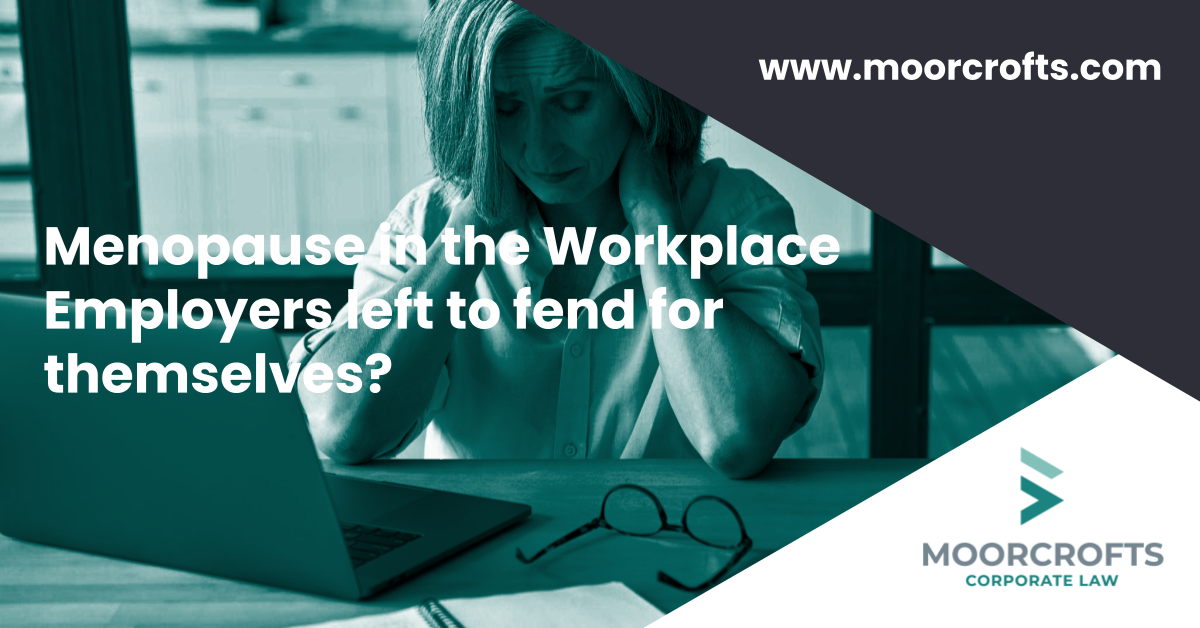Menopause in the Workplace – Employers left to fend for themselves?
The Government recently published its response to the report from the House of Commons Women and Equalities Committee on menopause in the workplace.
The report itself, recognised the increasing importance of how employers should support employees with menopause symptoms.
The report highlighted that:
“Women of menopausal age are the fastest growing group in the workforce and are staying in work for longer than ever before. Yet these experienced and skilled role models often receive little support with menopause symptoms. As a result, some cut back their hours or responsibilities. “
To address these concerns, the Committee made a number of recommendations which the Government has now responded to. Whilst the Government has agreed to implement a number of the recommendations such as appointing a Menopause Employment Champion, many of the recommendations have been rejected.
These include:
- the production of model menopause policies
- development and piloting of a menopause leave policy
- the commencement of a combined discrimination provision allowing for dual characteristic claims; and
- launching a consultation on making menopause a specific protected characteristic.
However, employers shouldn’t take the view that in the absence of any Government intervention, that employees with menopause symptoms don’t have any legal protection. Employees who suffer detriments and/or dismissal due to menopause related issues can, under current discrimination legislation, pursue age, sex and disability discrimination claims.
These claims are on the increase with a report from 2022 showing a 44% increase in menopause related employment claims at the Employment Tribunal. Given the current focus on menopause in the workplace, this is only likely to continue to increase.
The case of A v Bon Marche (In Administration) is a cautionary example. In this case the employee’s work situation deteriorated dramatically when she began to go through the menopause. Her male manager would demean her and humiliate her in front of other staff who were younger than her and would laugh at the manager’s remarks. The manager also refused to adjust the temperature in the shop to take account of the employee’s requirements. It is perhaps not surprising that the employee succeeded in claims for age and sex discrimination. The Employment Tribunal’s view of the treatment that the employee had suffered was reflected in the award of £18,000 for injury to feelings.
Given that this is an issue which employers need to address, we are running a free webinar on 23 February looking at menopause in the workplace. We will be joined by Dr Laila Kaikavoosi, Founder and Clinical Lead at Online Menopause Centre (OMC), when we will cover the essential aspects of menopause health in the workplace for employers and HR teams.
As well as covering the basics of menopause health, we’ll highlight the importance of building awareness at every level of an organisation and the measures you can put in place to support executives, managers and employees.
Find out more
You can find out more about the free webinar and register to attend here.



